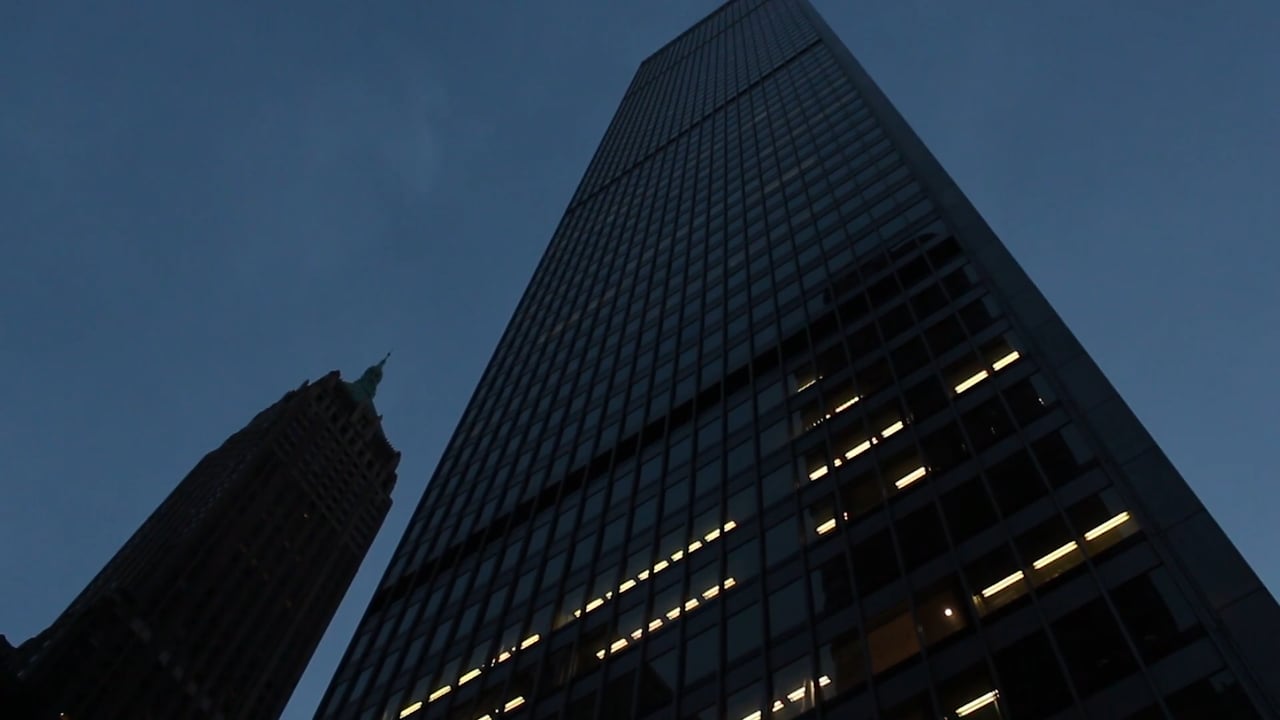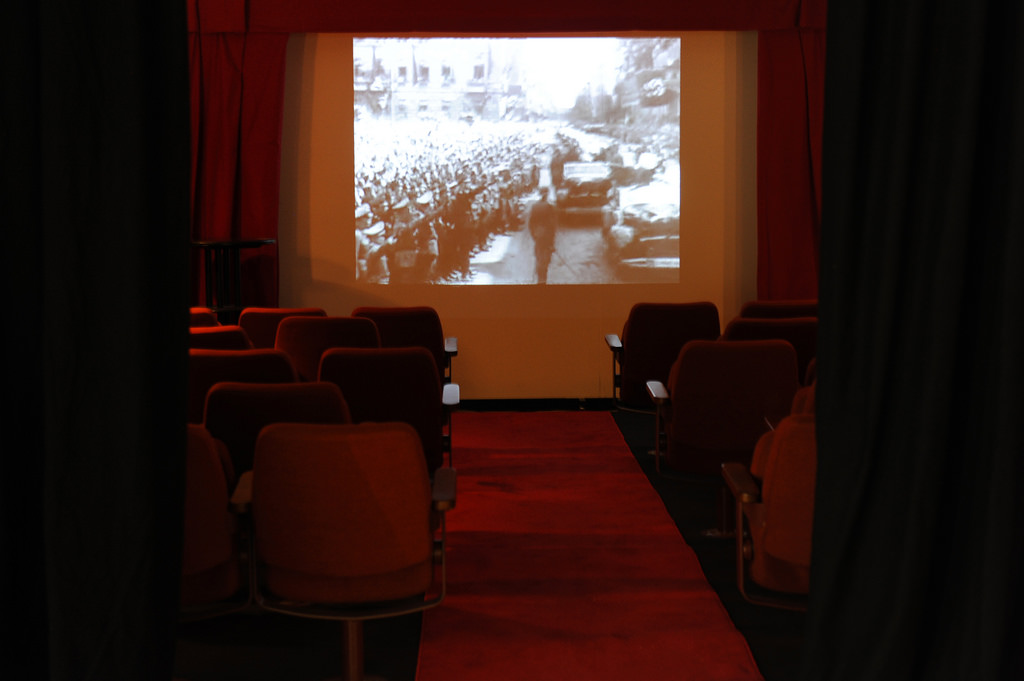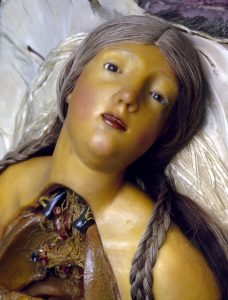
Nathaniel Sullivan, Before the Nation Went Bankrupt (still), 2016

Adam Curtis, The Century of the Self. Photo by Diewke van den Heuvel
On Monday, i took you on a quick walk through the exhibition of the Economia festival in Eindhoven. Today I’m going to share a few short films, animations and documentaries i discovered over the 3 days i spent there. The screenings exposed the world of finance under the most human perspectives: from the bank robbery that goes terribly wrong to an economic system so complex they become incomprehensible for humans, from the bankers trying in vain to avoid massive troubles to people forming endless queues in order to receive free soup and bread, etc.
There were some real gems in the film program put up by Baltan Laboratories and the invited curators but i’m going to tell you only about the ones you can watch online for free:
David Borenstein, Rent a Foreigner in China
While he was in China studying urbanization and real estate speculation, David Borenstein discovered the existence of ‘foreigner agencies’ that hire European, Indian, African and American expats to help real estate developers market their new developments and turn remote ghost towns into ‘globalized cities’ on the days that investors and potential buyers visit. All the foreigners have to do is pose as investors, buyers, or ‘superstars’. Borenstein calls these jobs ‘white monkey gigs’. The festival screened the feature length documentary, called Dream Empire, but Borenstein also did a short film for the new york times that sums up the phenomenon and that’s the one you can watch above.
Jorge Furtado, Ilha das Flores (Isle of Flowers), 1989
Isle of Flowers is an amazing Brazilian pseudo-documentary short film by Jorge Furtado. The 1989 film follows the path of a tomato from the field to the supermarket to a perfume saleswoman’s kitchen to a landfill outside of the city.
Each stage in the journey of the tomato requires the exchange of money. Until it is judged unfit for consumption by the woman, thrown in the garbage, and unloaded in a landfill. There, it becomes part of the organic material selected by farmers to be given to pigs as food. The rest, which is considered inadequate for the pigs, is given to poor children and women to collect and eat.
The film talks with humor about the absurdity of consumerism and about our indifference to the suffering of other human beings.
Bela Tarr, Prologue, 2004
Prologue is part of “Visions of Europe”, a 25-film anthology made by film directors from the European Union. Prologue is Hungarian film director Béla Tarr’s sharp and remarkably poignant view of Europe.
Scott Massey, One Thousand Four Hundred and Ninety Two Fifty Two, 2011
In One thousand four hundred and ninety two fifty two, Scott Massey attempts to convince a bank employee to pay off his overdraft using the words, ‘one thousand four hundred and ninety two fifty two’ as payment. He recorded the dialogue with a hidden microphone.
Konrad Kästner, Cathedrals, 2013
The city of Kangbashi is one of the most famous ‘ghost cities’ of China. The images of empty streets and light shows that no one sees are accompanied by a voice-over telling the modern fable about a cathedral built of money.
Yorgos Zois, Casus Belli, 2010
As film director Yorgos Zois writes: People standing in line; all in order. Everyone is starving for something: products, entertainment, religion, art, money. But in the last queue they are all starving for… food. It’s the queue of personal survival. If the food ends, then disorder begins. And if one man falls, we all fall down.
Nathaniel Sullivan, Before the Nation Went Bankrupt, 2016
Before the Nation Went Bankrupt tells the story of the financial crisis through the fictional love letters that JPMorgan Chase CEO Jamie Dimon wrote to his wife, daughter, mistress 1, mistress 2, etc. He writes these messages as the financial crisis is about to change the world. More precisely, during the weekend he spent at the Federal Reserve, in Manhattan, summoned along with the CEOs of the biggest banks to save the world economy from ruin. Or rather to save themselves from ruin.
Adam Curtis, The Century of the Self (Part 1: “Happiness Machines”), broadcast on 29th April 2002
The Century of the Self is a 2002 tv documentary series by Adam Curtis. Episode one, Happiness Machines, exposes how Sigmund Freud’s theories were used by PR gurus and politicians to manipulate the masses. The central figure in the film is Edward Bernays, a pioneer in the public relations profession who showed American politicians and corporations how, by satisfying the inner irrational desires that Freud had identified, the masses could be made happy, gullible and docile.
Francois Alaux, Hervé de Crécy & Ludovic Houplain, Logorama, 2009
Logorama is a clever action-packed film told entirely through the use of more than 2,500 brand logos and mascots. Ronald McDonald is the villain, Michelin Men play the cops, the Green Giant is in charge of security at the zoo, etc.
Santiago Bou Grasso, El Empleo (The Employment), 2008
This short animation film by Santiago Grasso received 105 awards. It’s quite good but not 105 awards good, imho. Maybe the jurors were surprised by the ending (i saw it coming way before the guy left his house and i’m not even that clever at guessing the end of books.)
That’s it for today! More about the festival soon!
Previously: Economia, a festival on economy without the economists.







